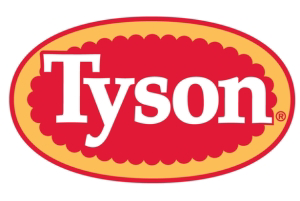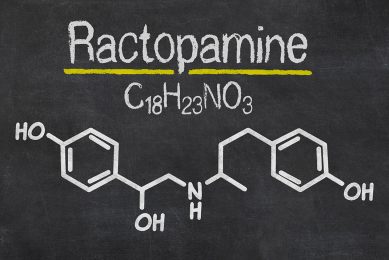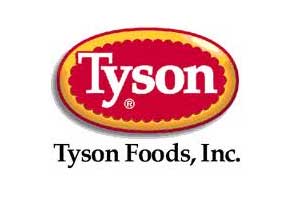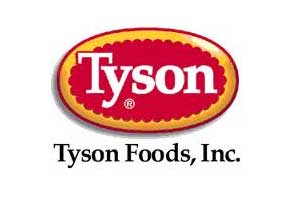Tyson: On-farm audit programme for hog producers

Tyson Foods is launching a programme to personally audit the treatment of animals at the hog, cattle and poultry farms that supply the company. The effort is in line with the company’s core value to serve as a steward of the animals entrusted to it.
“Our company is made up of ethical, responsible and compassionate people, and we believe the family farmers who supply us share our values,” said Donnie Smith, president and CEO of Tyson Foods. “We know more consumers want assurance their food is being produced responsibly, and we think two important ways to do that are by conducting on-farm audits while also continuing to research ways to improve how farm animals are raised.”
“Here’s what I want people to know: At Tyson, we care enough to check on the farm; and we’re determined to help find better ways to care for and raise healthy animals,” said Smith.
Hog farmers
Tyson currently works with more than 12,000 independent livestock and poultry farmers. This includes 5,000 family poultry farmers, 3,000 family hog farmers and 4,000 family cattle farmers. The company has long been an industry leader in animal welfare, employing more than 12 veterinarians and maintaining an office of Animal Well-being since 2000.
“We believe the farmers who supply us are the best in the world, and I think the audits will verify this,” Smith said. “But, if we find problems, we want them fixed right away. To our knowledge, no other major US meat or poultry company offers this kind of service to its farmers, customers and consumers.”
FarmCheck audit programme
The audits – called the Tyson FarmCheck programme – have already begun on a trial basis on some of the 3,000 independent hog farms that supply the company. Auditors are visiting the farms to check on such things as animal access to food and water, as well as proper human-animal interaction and worker training.
The FarmCheck programme has been under development since early spring 2012. Although Tyson personnel have been conducting the audits so far, the company plans to ultimately involve independent, third party auditors. It also intends to expand the program to include chicken and cattle farms by January 2014. The audits are being developed by experienced veterinarians and animal welfare experts and are expected to include measures that build upon current voluntary farm industry programs.
“These audits will give us a chance to correct any minor problems that are discovered and, if necessary, to stop doing business with any farms where animal treatment or conditions do not meet our standards,” Smith said.
Research
Tyson Foods also plans to develop a new Farm Animal Well-Being Research programme to review existing research as well as fund and promote additional research that the company believes will lead to continued improvements in animal raising methods.
“We want to identify and study the critical points – from breeding to harvesting – where the quality of life for livestock and poultry can be improved, and use the results to make a difference,” Smith said. “We know that content farm animals are healthier, and at Tyson Foods we want healthy animals.”
Farm animal well-being advisory committee
Both the FarmCheck programme and the research programmes will be overseen by a new, external, Animal Well-Being Advisory Committee that Tyson Foods is establishing. Those selected to serve will include people with expertise in farm animal behavior, health, production and ethics. The committee is expected to begin its work in March 2013 and will help Tyson Foods determine research priorities and ways to improve the FarmCheck programme.
Internal management structure
Tyson Foods is selecting a special team of senior leaders from key areas of the company to oversee the FarmCheck programme, the research program and the company’s interaction with the external advisory committee. Dr Dean Danilson, who has been vice president of Food Safety & Quality Control for Tyson Foods, is now vice president of Animal Well-Being programmes. He and his staff will manage the audits, research and external advisory committee activities for hogs, cattle and chickens.










